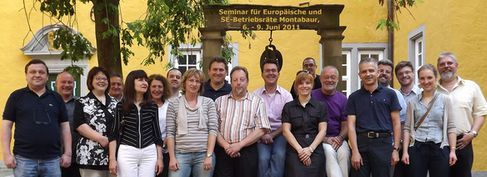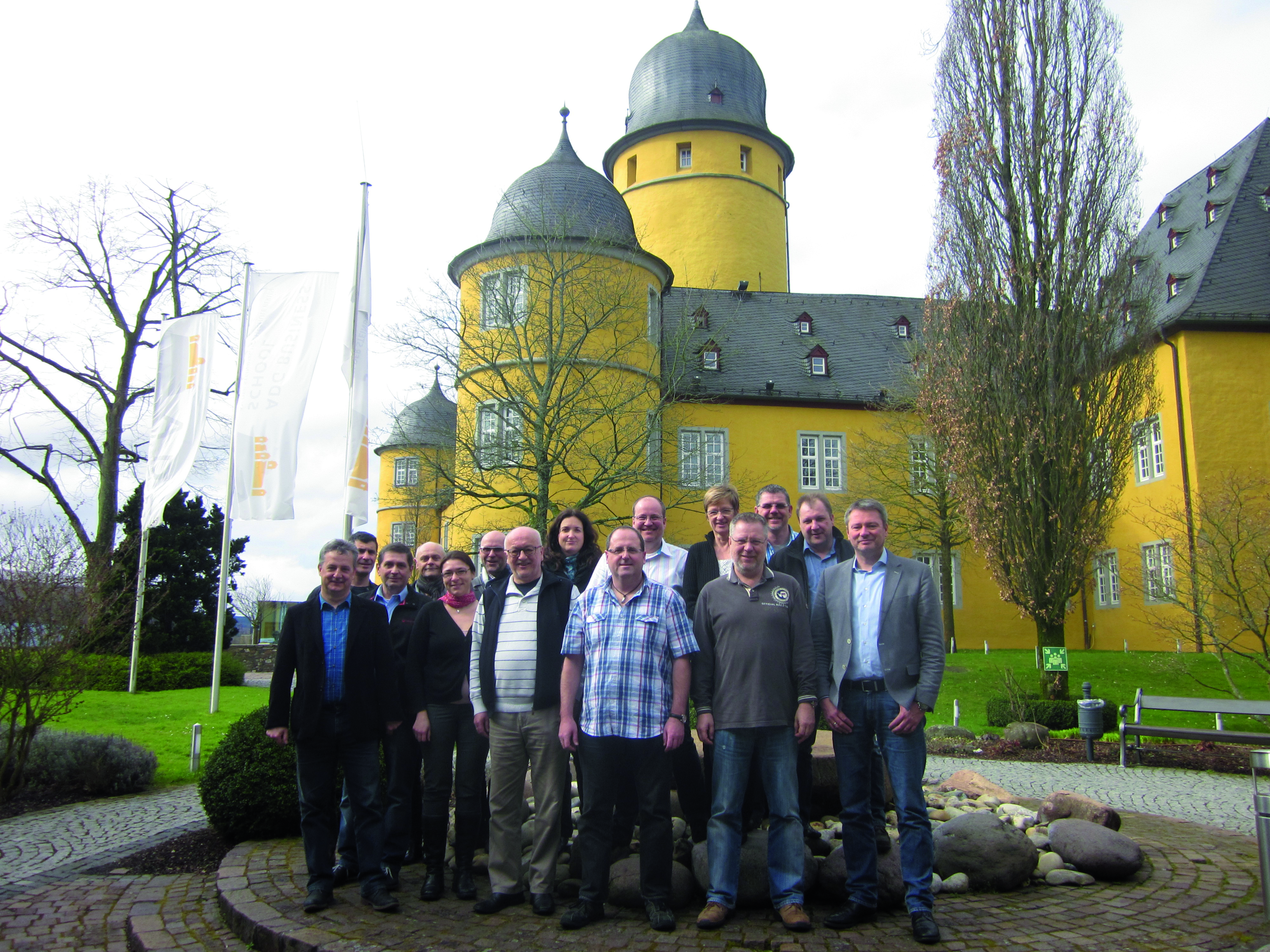Seminar for European Works Councils and SE Works Councils
(Level 1 and level 2)
7 - 10 April 2026, Montabaur Castle

Since 2009, we have held our basic seminar once a year: the EWC introductory days for beginners and the consultation seminar for advanced learners. Some of the participants still have the idea of setting up a European Works Council, others want to know about the design of transnational consultation procedures. One seminar module deals with workplace representation and collective bargaining in the most important EU countries.
→ Report from our seminar in Montabaur in 2023
Programme:
The practical work of an EWC
European works councils have existed for many years. However, unlike the legislation on national works councils, the EWC Directive does not contain many mandatory requirements on the com-position and functioning of the body. The company´s social part-ners enjoy a considerable amount of freedom in regulating all the details, which must be defined and documented in a pan-European company agreement (EWC agreement).
- Introduction: the current EWC landscape
- The legal basis (EU Directive and national transposition laws)
- How do European Works Councils organise their work?
- How can local works councils in individual countries be involved?
- Opportunities for EWC action during restructuring
- To whom do the legal minimum standards apply and to whom do they not?
- What can be expected from judicial proceedings?
Industrial Relations in EU countries
Should a works council in an international company wish to work together with employee representatives in other countries, alongside the language barriers there will also be intercultural communication problems lying in wait. A basic knowledge of the respective labour law and participation cultures is therefore important. This seminar module deals with the different systems of workplace representation (focused on France and Great Britain).
- What are the tasks of workplace representatives in other countries?
- What models of workplace representation exist?
- How do works councils operate when they have no co-determination rights?
- How do employers relate to their works councils?
The core activity of the EWC: Information and Consultation
The blueprint for the EWC Directive is not based on German co-determination but on the French philosophy of information and consultation. French-style European Works Councils are consequently on familiar ground and make the most of their rights. They analyse all the company business figures with the support of consultants before rendering their opinion. What are non-French works councils able to learn from this?
- Definition and practicalities of information and consultation under the EU Directive
- The characteristics of an extensive consultation procedure "à la française"
- Working groups: Procedure for a restructuring based on a practical case study
- How can alternative scenarios be elaborated during consultation?
- Developing a reporting and warning system
Basics of German co-determination for non-German participants(only on request)
|
Our speakers:

Dr Werner Altmeyer
Managing Director of the EWC Academy
 Joachim Gschwendtner
Joachim Gschwendtner
Deputy Chairman of the European Works Council
at the British telecommunications company BT
 Udo Verzagt
Udo Verzagt
Former Chair of Hewlett-Packard's European Works Council
 Rainer Appel
Rainer Appel
Consultant of the EWC Academy in reorganisation and restructuring issues



